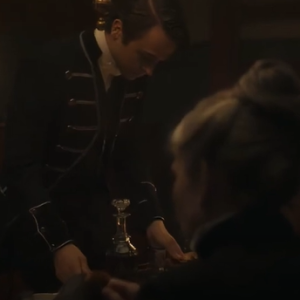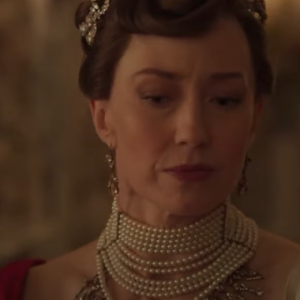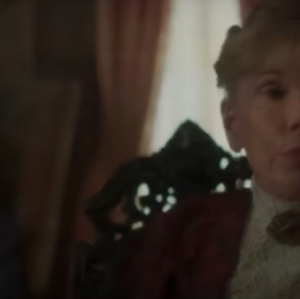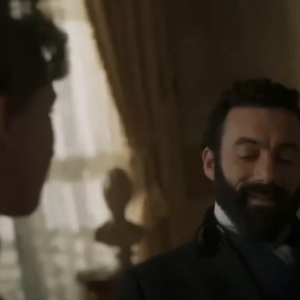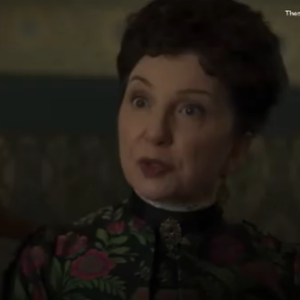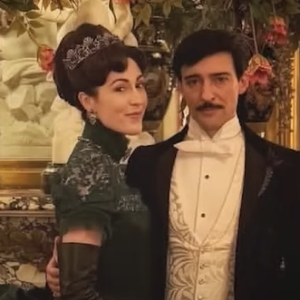In a season that arrives with the precision of a ballroom audit, HBO’s The Gilded Age finally pivots from glossy popcorn to something more substantial, more intimate, and more legible as prestige drama. The third outing leans into weightier arcs, riskier choices, and a central claim I voiced after Seasons 1 and 2: give its defining antagonists skin, let the consequences land, and the show will breathe as if stepping off a stage and into a world that could actually crack under pressure. Season 3 delivers on that promise with a series of maneuvers that feel earned, not manufactured, and when the final curtain falls, the show seems to remind us that power, status, and belonging are not just games of optics but high-stakes, morally fraught gambits.
George Russell is the season’s nervous center, a man who has spent three seasons narrating his own indispensability while never fully letting the audience breathe. The Arizona crisis is this season’s leverage point: the empire feels fragile, the empire builders feel exposed, and for the first time, the episode-to-episode momentum doesn’t simply rely on George’s charisma but on a plausible threat to what he has spent years constructing. The plot twist that lands most abrasively is not a sudden betrayal but the clarity of risk—the gunshot that shakes the mansion, the ensuing medical crisis, and the quiet, almost procedural unspooling of who benefits and who pays the price. The surgical scene in the finale—WilliamM,’s steady hands and the camera’s patient close-ups—transforms a cliffhanger into a meditation on mortality and the fragility of a life built on ambition. Even as George survives, the episode makes it clear that survival only increases the stakes: if the shooter’s identity is left unresolved, Season 4 becomes a chessboard with more players and fewer guarantees. The shock work is not about a single sensational beat but about the cumulative sense that George’s world could crack at any hinge, and the show rewards viewers with a plausible, emotionally coherent reason to care.
Bertha, ever the season’s master strategist, has her own awakening of sorts: ambition now comes with cost, and the costs are intimate. Her maneuvering—pulling strings, managing reputations, and watching walls close in on her carefully curated life—finally collides with something more real than the theater of control. The tension is not just “will she win?” but “what does her victory require of her family, of her marriage, of the future she has dictated from a distance?” The arc lands with a particular resonance in the season’s middle chapters, where Bertha’s insistence on preserving appearances collides with the messy, loud, human costs of her choices. When you watch Bertha watch her daughter’s life teeter on the same cliff she stands on, the show asks a deeply uncomfortable question: what does it cost to keep up appearances when the people you love most demand something honest, even if honesty costs you everything?
Miss Feain’s divorce arc is a masterclass in social gravity. The show has always treated divorce and adultery as moral weather systems—how the community reads a rupture matters as much as the rupture itself. In Season 3, Feain’s divorce is not merely a personal tragedy but a social indictment: a woman who does nothing wrong becomes the subject of social exile while the guilty party can step back into a gilded phantasm. The script’s bravura move is showing the hypocrisy from multiple angles, letting Charlotte’s choices—her husband’s defiance, the duel that never lands on screen, the protective posture of her mother—unfold with a quiet, devastating clarity. When Bertha’s circle finds itself policing a morality it profits from yet refuses to live by, the show does something subtle but essential: it makes the audience feel the cost of the social machine, and it does so without slowing the plot to a sermon.
Glattis’s subaqueous ascent is another example of Season 3’s refined approach to romance as political leverage. Watching her navigate an England that has long-standing expectations and an American suitor who embodies a different set of rules becomes a courtroom drama of etiquette and authenticity. The way she handles Lady Sarah—perfect execution that borders on vengeful pretension—feels like a late-season amplification of the series’ belief that power is ultimately interpersonal, not merely institutional. The romantic turn between Glattis and the Duke’s sister lands with a mix of predictability and practicality: yes, audiences could guess the trajectory, but the episode is cunning enough to reward the grin that comes with that predictability by making the payoff feel inevitable, earned, and emotionally resonant.
The staff plotlines, always a lifeblood of the series, receive a rare, well-deserved glow-up this season. John/Jack’s moral compass remains a steadying force in the city’s maelstrom, and his relationship with Larry—an evolving partnership that sidesteps melodrama for genuine character growth—stays one of the show’s most humane accelerants. The tenderness of selling his clock to fund real-world wealth—an act that says more about character than a grand speech—becomes a quiet subtext about how the show understands wealth as something you earn by trust, not merely something you hoard. The finale’s charitable gesture toward Bridget—how a guest is treated in a home that may soon be her own—reads as a thesis on dignity, the kind that does not rely on fireworks but on a deliberate, character-driven choice to treat people as people, not as pawns in a management diagram. It’s small but incandescent, and it anchors the season’s broader ambition: warmth, trust, and decency are not luxuries of the era; they are necessary ballast in a world built on appearances.
Peggy’s arc, though uneven in its distribution, still lands with a strong emotional echo. The seasonic choice to pull back from the Booker T. Washington subplot that had teased so much potential in Seasons 1 and 2 and reframe Peggy as a figure whose tenderness and vulnerability can coexist with a plot that privileges romance is a delicate balance. Her breakdown after William appears to end things is not a plot reversal so much as a reminder that the show’s scope is not merely about who sits where at the table, but who forgives whom when the table shifts. Felicia Rashad’s performance—subtle, buoyant, finally allowing Peggy a moment that feels earned rather than performative—gives the season an emotional center that avoids melodrama even while it navigates the era’s most charged emotional terrain. 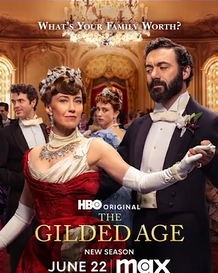
In sum, Season 3 of The Gilded Age is a reclamation of tone, tension, and thematic ambition. It calibrates its aristocratic pageantry against the grit of personal jeopardy and social consequence, and in doing so, it asks the audience to invest in people who are often defined by their public personas rather than their private flaws. The season’s best moments are not about the big shocks but about the quiet, credible steps that characters take toward a future they cannot fully predict. If Season 2 asked whether the show could sustain prestige with its soap-operatic pulse, Season 3 answers with a confident yes: the drama is not a veneer; it is a discipline, and when the patient work of narrative craft finally pays off, it pays off in a way that makes the viewer feel not just entertained, but seen. As we look toward Season 4, the unresolved questions—Who shot George? Will Bertha’s machinations fracture the family for good? How will Miss Feain navigate exile and dignity?—promise a continuation that respects the season’s new height: a drama that earns its respect by offering characters who are as complex as the world they inhabit.
